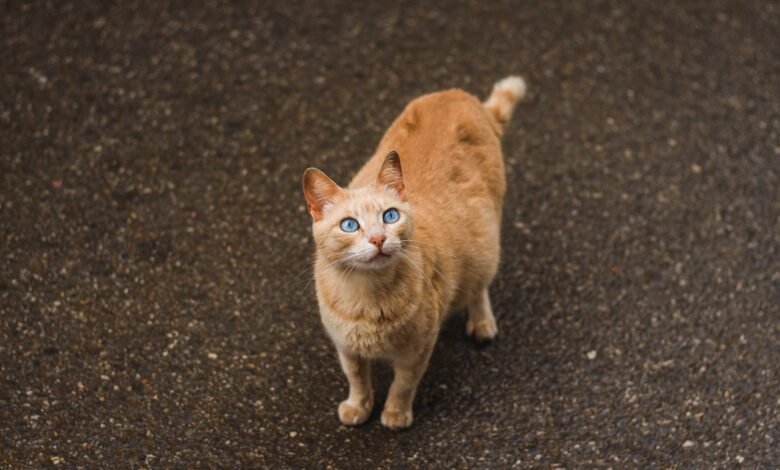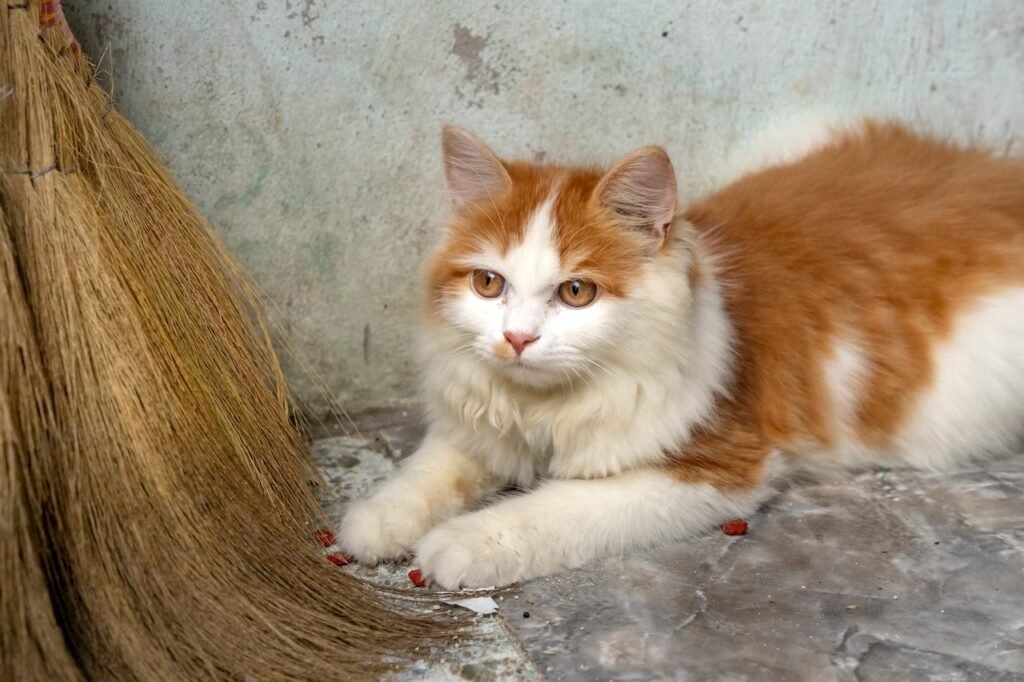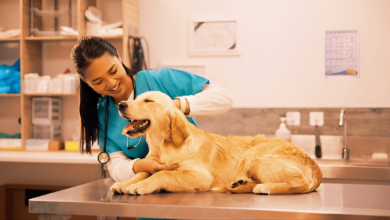
Why is My Cat Dry Heaving
As a cat owner, you’re likely familiar with the sound of your feline friend dry heaving. This unsettling noise can be concerning, but before you hit the panic button, it’s essential to understand that dry heaving in cats is a common occurrence and can be triggered by various factors. In this article, we’ll delve into the reasons why your cat dry heaving and explore potential solutions to ease your worries.
Read More: Cat Illnesses & Symptoms
What is Dry Heaving in Cats?
Dry heaving, also known as retching, is the act of a cat forcefully coughing or gagging as if trying to vomit, but nothing comes up. It can be accompanied by retching sounds and can leave cat owners puzzled and concerned. While it may seem alarming, occasional dry heaving is not uncommon among cats and can be caused by various factors.
Common Causes of Cat Dry Heaving

Hairballs: The Usual Suspects
One of the primary reasons for dry heaving in cats is the presence of hairballs. Cats are meticulous groomers, and during their grooming sessions, they ingest loose hair. This hair can accumulate in their stomachs over time, leading to irritation and the urge to vomit. However, since hairballs are usually tricky to expel, the cat may resort to dry heaving.
Gastrointestinal Irritation: A Potential Culprit
Gastrointestinal irritation can trigger dry heaving. This irritation could be a result of consuming something indigestible or irritating, causing the stomach to contract in an attempt to expel the irritant. The cat’s body initiates the retching reflex to eliminate the discomfort, even if nothing is brought up.
Dietary Indiscretions: When Cats Eat the Unexpected
Cats are known for their curious nature, and they might ingest objects that aren’t part of their regular diet. This can lead to irritation in the digestive tract, prompting the cat to dry hisave. Items like plants, strings, or small toys can cause such issues.
When to Worry: Is It Just Dry Heaving?

Distinguishing Dry Heaving from Vomiting
It’s crucial to differentiate between dry heaving and vomiting. Vomiting involves the actual expulsion of stomach contents, while dry heaving does not result in anything being thrown up. If your cat is consistently vomiting or if the dry heaving is followed by vomiting, it’s important to consult a veterinarian.
Signs of a Serious Underlying Issue
While occasional dry heaving might not be a cause for concern, frequent or persistent dry heaving could indicate an underlying health problem. If your cat’s behaviour changes, they show signs of discomfort, or if there are other unusual symptoms accompanying the dry heaving, seeking professional medical advice is advisable.
Steps to Prevent and Manage Dry Heaving

Regular Grooming: Keeping Hairballs at Bay
To reduce the frequency of dry heaving due to hairballs, regular grooming is essential. Brushing your cat helps to remove loose hair, preventing excessive hair ingestion during grooming.
Choosing the Right Diet: Aiding Digestion
A balanced and easily digestible diet can help minimize gastrointestinal irritation, reducing the likelihood of dry heaving. Consult your veterinarian to choose a diet that suits your cat’s specific needs.
Hydration: A Simple Solution
Proper hydration can play a significant role in preventing dry heaving. Ensure your cat has access to clean and fresh water at all times to maintain their overall health.
Consulting the Vet: Professional Guidance

Diagnostic Tests and Examinations
If your cat’s dry heaving persists or becomes a cause for concern, consult a veterinarian. They may recommend diagnostic tests, such as blood work or imaging, to identify any underlying health issues.
Following the Veterinarian’s Advice
Once a diagnosis is made, follow your veterinarian’s recommendations diligently. They may prescribe medications, suggest dietary changes, or provide other treatments to address the underlying cause of dry heaving.
Addressing Hairballs: Combating the Issue

Brushing and Grooming Techniques
Regular brushing not only prevents hairballs but also strengthens the bond between you and your cat. Gentle grooming sessions can help remove loose hair and reduce the risk of hairball-related cat dry heaving.
Commercial Hairball Remedies
There are various commercial hairball remedies available, including specialized cat foods and treats designed to prevent hairballs. Consult your vet before introducing these products into your cat’s routine.
Gastrointestinal Health: Minimizing Irritation

Sensitive Stomach Formulas: A Game Changer
If your cat is prone to gastrointestinal issues, consider switching to a cat food formulated for sensitive stomachs. These diets are designed to be gentle on the digestive system and may alleviate cat dry heaving caused by irritation.
Avoiding Certain Foods
Some human foods are toxic to cats and can lead to gastrointestinal distress. Keep your cat away from foods like onions, garlic, chocolate, and alcohol, which can cause irritation and cat dry heaving.
Promoting Overall Well-being: Lifestyle Adjustments

Stress Management: A Surprising Factor
Stress and anxiety can contribute to various health issues in cats, including dry heaving. Create a calm and enriching environment for your feline friend to reduce stress levels.
Regular Exercise and Mental Stimulation
Engaging your cat in play and providing opportunities for mental stimulation can improve their overall well-being. An active and mentally stimulated cat is less likely to experience stress-related cat dry heaving.
Read More: Tips to Take Good Care of Your Cat
FAQ’s
- Can hairballs be completely prevented? While complete prevention is challenging, regular grooming and the use of specialized hairball remedies can significantly reduce the occurrence of hairballs.
- Is cat dry heaving a sign of a serious illness? Not necessarily, but persistent cat dry heaving could indicate an underlying health issue. Consulting a vet is recommended for accurate diagnosis.
- Can stress cause dry heaving in cats? Yes, stress can contribute to cat dry heaving. Creating a stress-free environment and providing mental stimulation can help alleviate this.
- How often should I groom my cat to prevent hairballs? Regular brushing, at least a few times a week, is recommended to prevent excessive hair ingestion and subsequent dry heaving.
- What should I do if my cat’s dry heaving is accompanied by vomiting? If your cat is vomiting alongside cat dry heaving, it’s advisable to consult a veterinarian to determine the underlying cause and receive appropriate treatment.
Conclusion
In most cases, occasional cat dry heaving is normal behaviour and can be managed effectively through grooming, dietary adjustments, and a stress-free environment. However, it’s essential to stay vigilant and consult a veterinarian if the cat’s dry heaving becomes frequent or is accompanied by concerning symptoms. By understanding the causes and taking appropriate measures, you can ensure your feline companion’s health and happiness.








One Comment